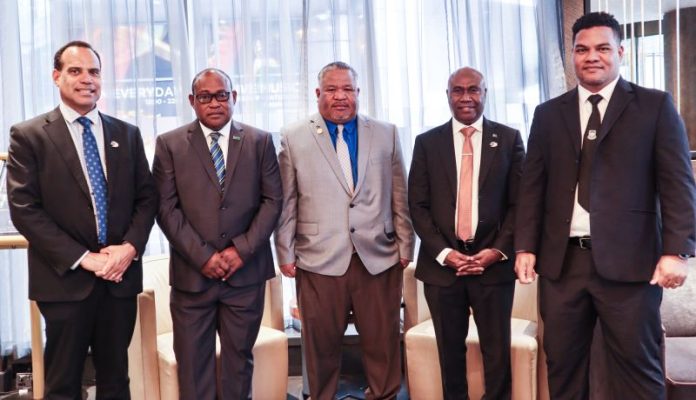The Republic of the Marshall Islands (RMI) made a bold stand in London last week, pressing for urgent global action on maritime decarbonisation at the 82nd session of the International Maritime Organisation’s Marine Environment Protection Committee (MEPC82).
Minister Hilton Kendall, representing RMI called for decisive measures, emphasising the need for economic and technical solutions to advance together.
RMI, as part of the 6PAC+ coalition—a group of Pacific and Caribbean nations pushing for climate justice—has been vocal about the introduction of a universal emissions levy.
“This is about fairness and survival,” said maritime consultant Jessica Taylor, representing Barbados, another key player in the coalition.
Taylor pointed out that Pacific and Caribbean nations are unified in their vulnerability to climate change and demand that the shipping industry pay its share.
Meanwhile, with talks last week in London to discuss the future of the shipping industry where there is fierce debate over the introduction of a global carbon levy.
In one camp are supporters of the carbon tax as a key part of the polluter pays principle. The other camp wants a penalty system built within a global fuel standard (GFS), which is a measure that will push ships to decrease fuel greenhouse gas emissions. Some argue that you don’t need a carbon tax if you can have penalties for non-compliance under the GFS.
A global greenhouse gas levy, in combination with the global fuel standard, is therefore essential to ensure that shipping companies start to bear the cost of their emissions and contribute to financing the industry’s decarbonisation.













